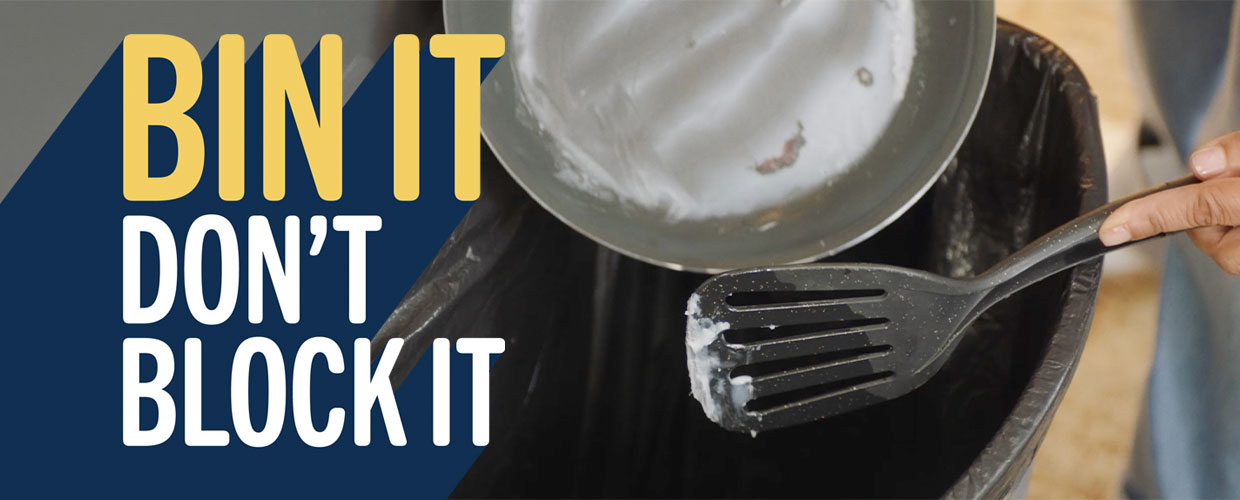Cooking fats, oils and grease
You wouldn’t put jam in your printer… so why put cooking oil down your drain?
Fats, oils and grease might seem harmless. But even small amounts can build up in pipes, harden when cold and cause nasty blockages.
This not only damages your home but the environment too.
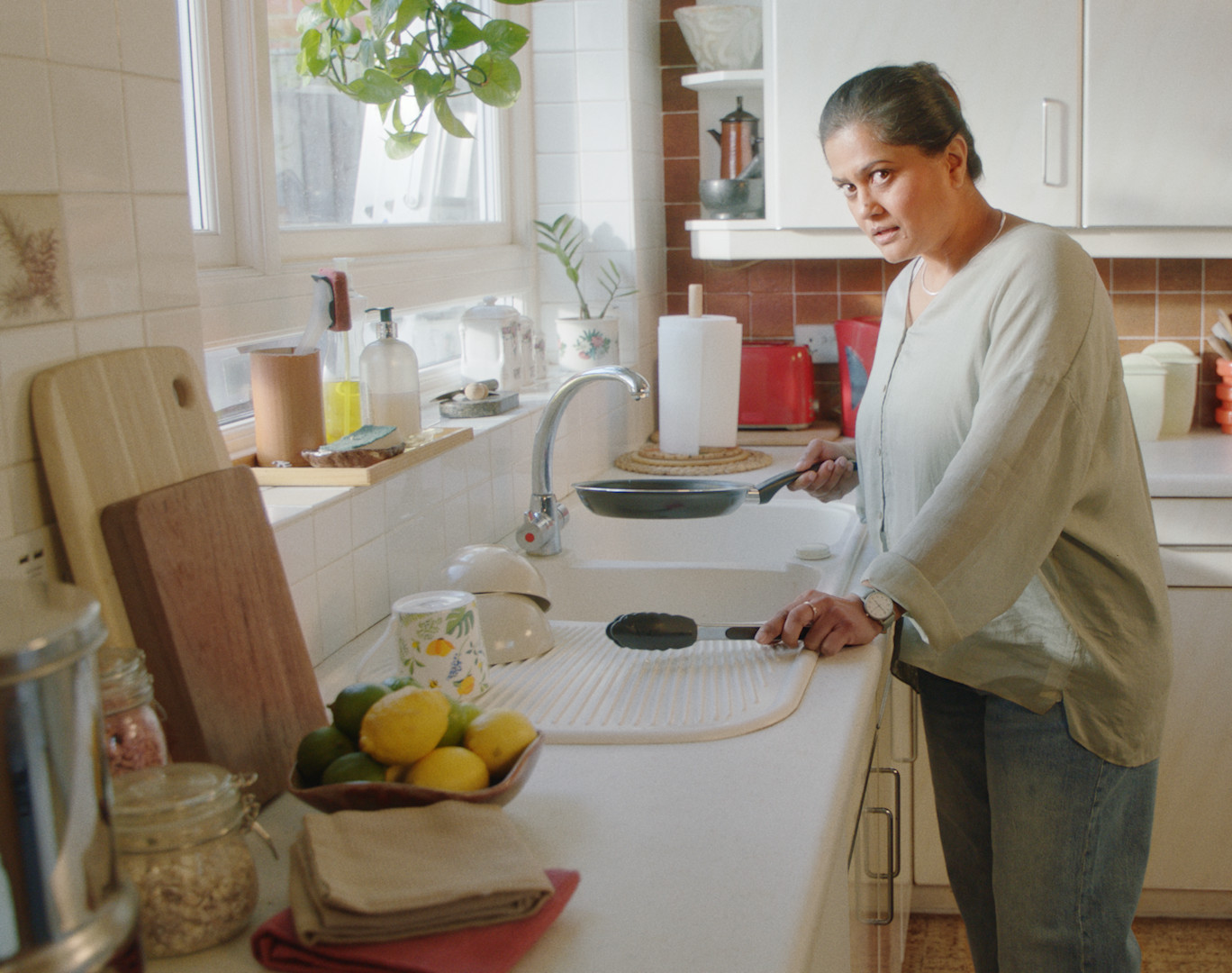
Why it matters
Every time fats, oils or grease go down the drain, they feed a hidden problem that can lead to:
- Slow-draining sinks and bad smells
- Expensive plumbing repairs
- Flooding and water damage in your home
- Wider issues in your local sewer system
A blocked pipe at home is your responsibility to fix and can cost you more than £200.
How to avoid kitchen drain blockages at home
The good news is you can keep your home and neighbourhood safe by following a few simple steps:

Let grease cool down safely
Once it’s solid, scrape it into the bin or a food waste container.
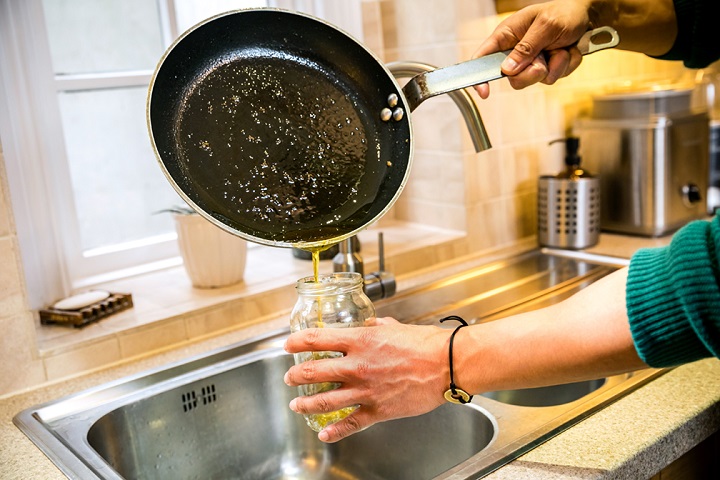
Use a container for liquid oils
Pour used cooking oil into a sealable container, like an old jar or bottle. Put this in the bin.
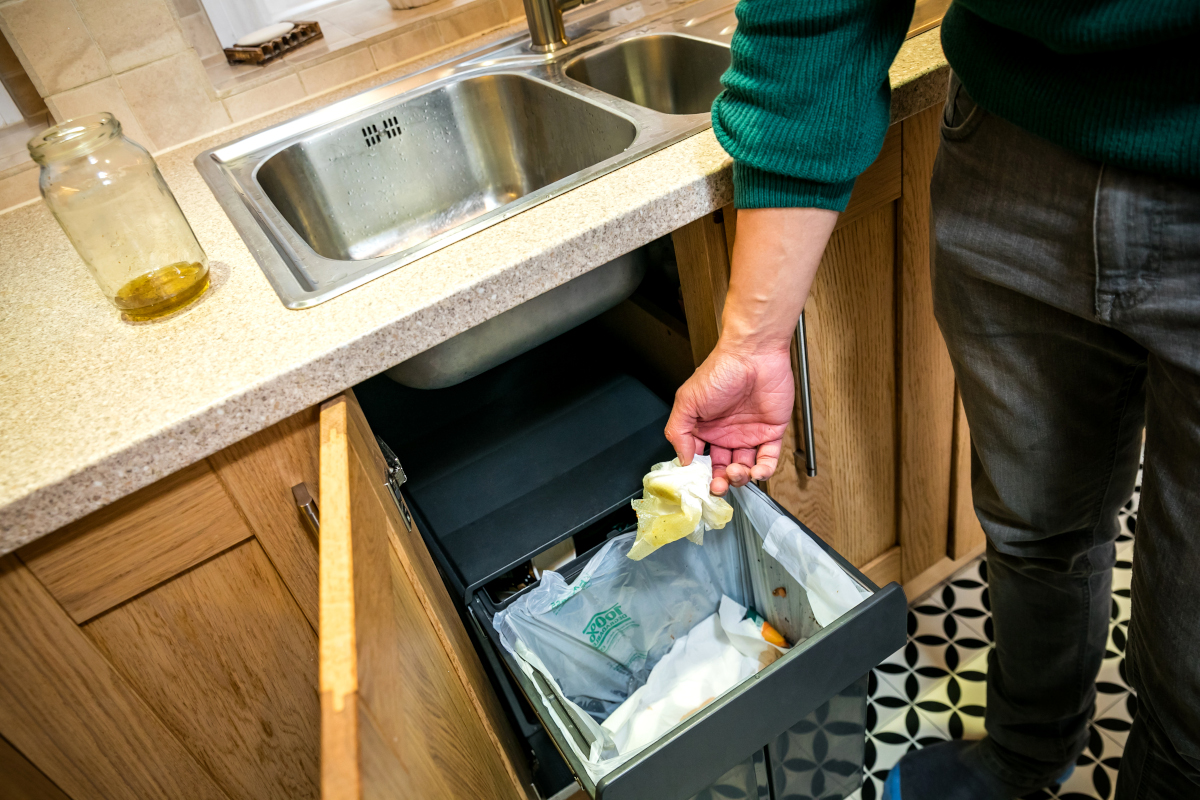
Wipe pans and plates before washing
Use paper towels to soak up excess grease and throw them in the bin.
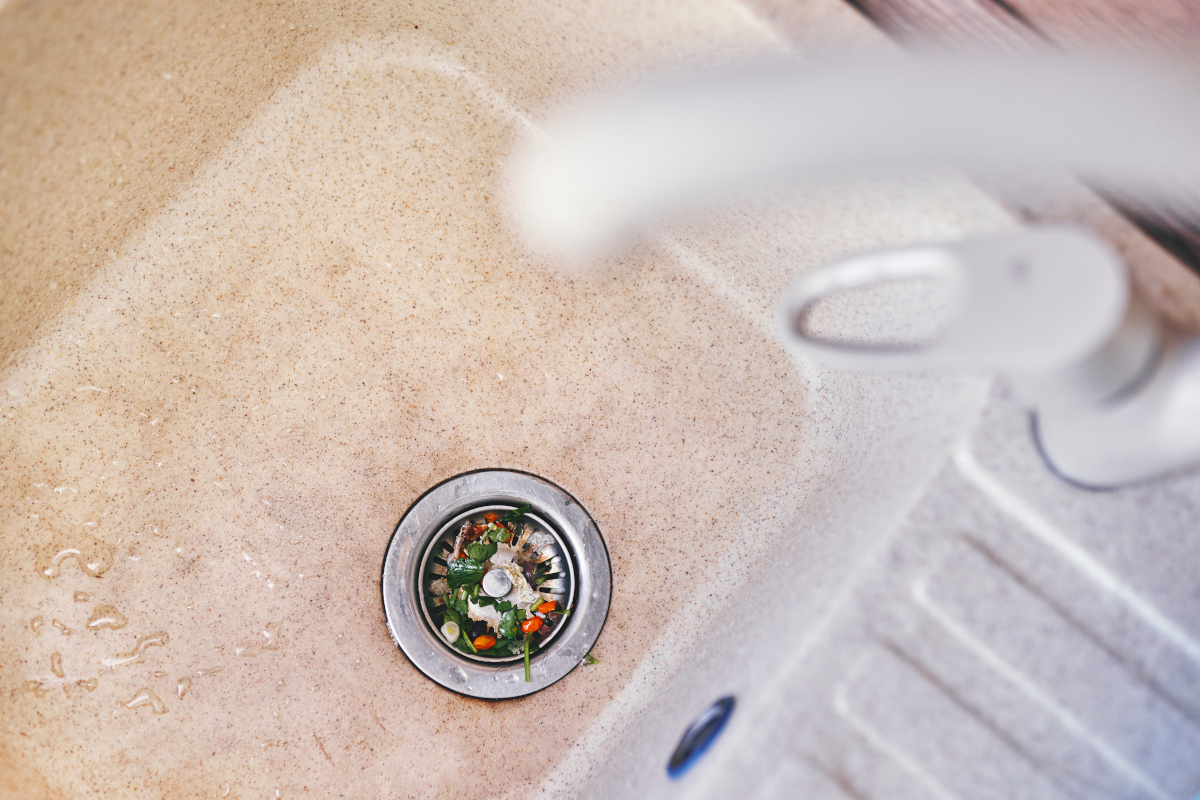
Use a sink strainer
It can help catch food scraps that could build up into blockages.
Some councils or waste services offer cooking oil recycling. Others offer special collection. Check in with your local council to see what’s allowed where you live.
Drain myths... busted
We clear up some common myths about fats, oils and grease.
Cooled cooking oil can't go down the sink
Even at room temperature, cooking oils don’t dissolve. Instead, they float on water and cling to the inside of pipes. They build up over time, just like solid fats.
Hot water doesn't melt grease
Water doesn't stay hot as it travels further down your drain. When the greasy water hits cooler pipes, it hardens and sticks.
Washing-up liquid can't break fats, oils and grease down
Unfortunately, fats, oils and grease still cools, clumps and clings to your pipes. It might just smell a bit nicer while it goes down!
